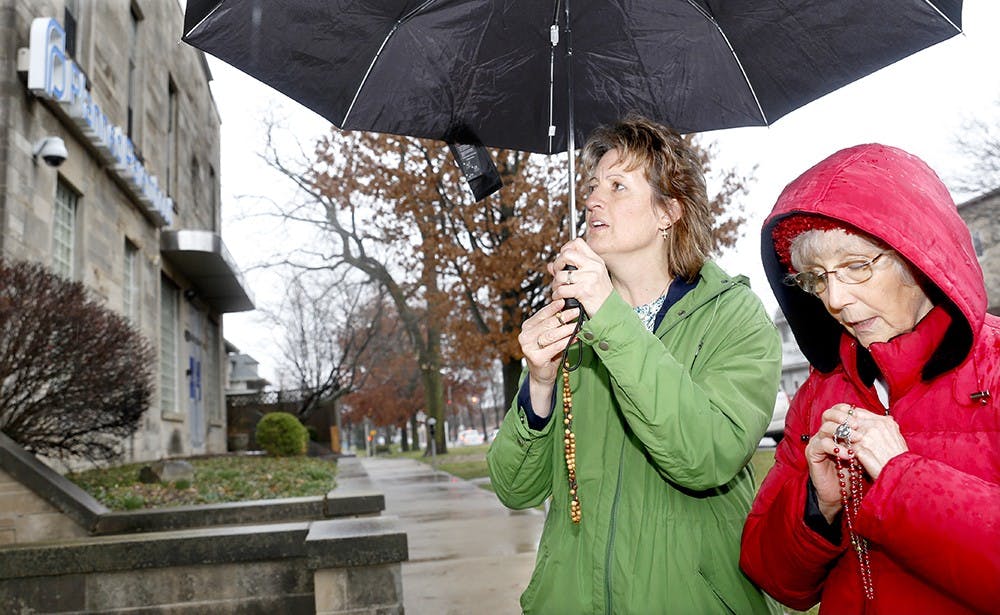A young man stood in the heavy rain outside Planned Parenthood’s door Thursday morning whispering into his cellphone.
He asked the woman on the other end when she’d arrive for her appointment and hung up. He walked through the first set of doors to the clinic and rang the buzzer to be let in.
“What are you here for today?”
“My girlfriend has an appointment.”
The door hissed as it unlocked. He walked into a busy waiting room full of both men and women.
Thursday was the National Day of Appreciation for Abortion Providers, but the Indiana General Assembly didn’t celebrate.
Indiana Speaker of the House Brian Bosma and President Pro Tempore of the Senate David C. Long signed a bill that would place unprecedented restrictions on abortion providers.
In response to the controversial Planned Parenthood videos released in July 2015, the bill criminalizes the transfer of fetal tissue and requires abortion providers to bury or cremate all fetal remains.
The videos, which were secretly recorded, showed Planned Parenthood officials discussing the sale of aborted fetus tissue and organs. Such tissue donations are legal if patients give consent.
Amendments added to the bill in the Senate would have Indiana join North Dakota as one of two states to ban abortions administered because of a fetus’s race, sex or any possible genetic abnormalities.
The House voted to pass HB1337 Wednesday night in a 60-40 vote.
Eleven Republicans voted against the measure, including several Congresswomen with pro-life voting records.
Junior Hannah Miller said it’s concerning that even conservatives thought the bill stretched too far.
Miller volunteers for Planned Parenthood as a patient escort.
She said she didn’t think the legislature should have the right to restrict the reasons for women to seek abortions and that she was unsure how the General Assembly plans to enforce the bill.
“I think it will cause people to lie to their doctors,” Miller said. “All of these requirements, like having doctors dispense unnecessary information about the risks of abortion, they degrade the trust between doctors and their patients.”
On Thursdays, when the clinic provides abortions, Miller safely escorts patients past protesters to their appointments.
“I talked to women who got abortions because giving birth would kill them, and these women already had children they needed to live for,” Miller said. “This law is only going to cause hardship.”
Pro-life activist Monica Siefker spent Thursday morning praying outside the Bloomington Planned Parenthood Clinic.
She said she’s glad the General Assembly passed the bill and hopes Gov. Mike Pence signs it into law.
“I’m excited because I feel it’s good for the unborn with disabilities,” Siefker said. “It’s a stand against eugenics.”
Siefker said she had been talking about the measure with other protestors since she arrived at the clinic at 7 a.m.
They said they hope the law will bring Indiana closer to ending legalized abortion.
“We think this bill will help society take another look at the humanity of the unborn,” Siefker said.






